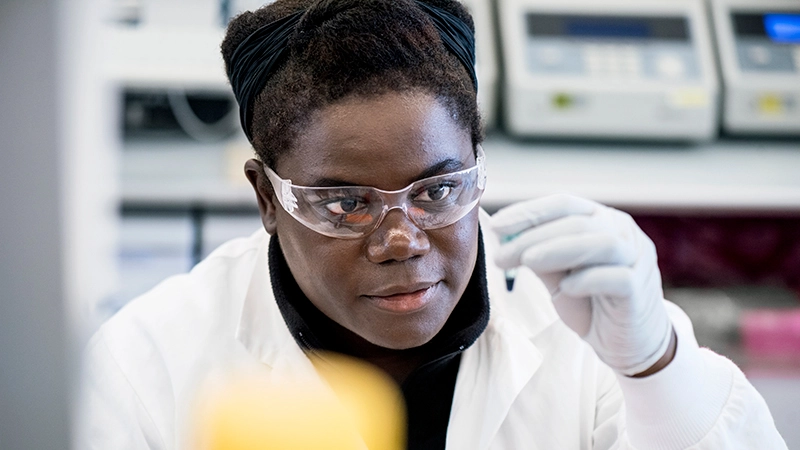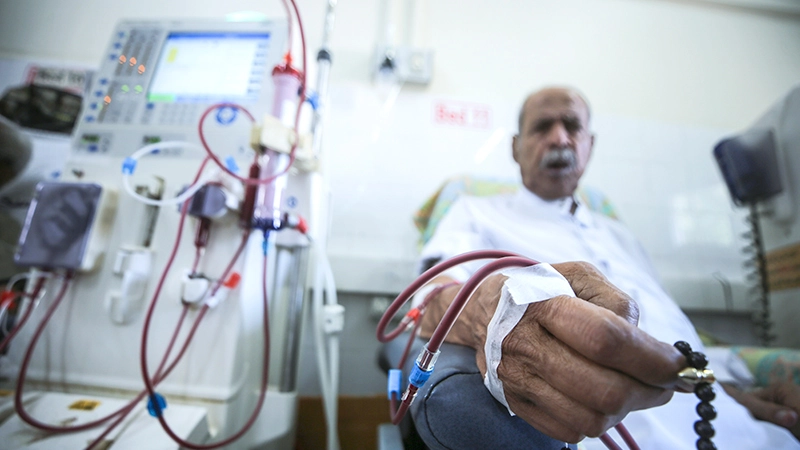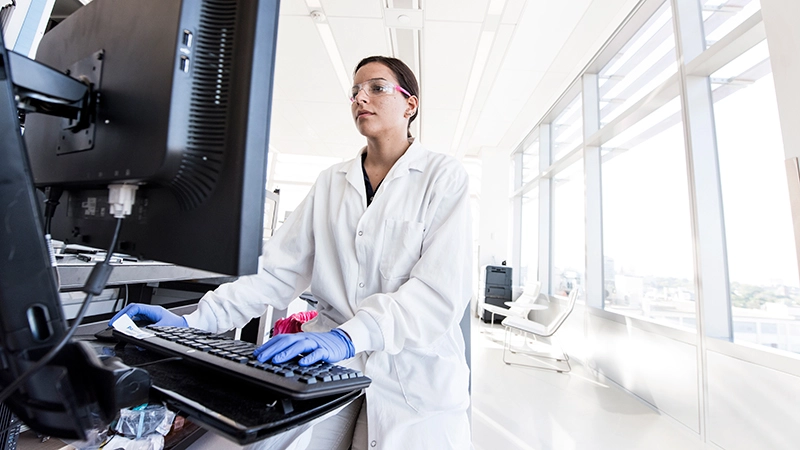Before leaving port, sailors rely on meteorological data – wind force, swell, air temperature – to help them predict weather conditions at sea and stay safe.
Drug developers at Novartis are also using data to take a look into the future. They are working with the company Cibiltech to forecast disease progression of transplant patients with the help of a computer algorithm.
With this digital tool, the team at Novartis aims to reduce the time it takes to prove that an experimental therapy is safe and effective.
The partnership is part of a larger strategy at Novartis to bring medicines to patients faster. While the company’s researchers are applying this algorithm in clinical trials of an investigational therapy for transplant patients, they are also using predictive analytics to accelerate the development of treatments for other diseases like osteoarthritis.
Developing a new medicine typically requires following clinical trial patients over a long period of time to make sure the therapy is safe and effective. Today, it takes on average more than 10 years for a treatment to be approved, meaning it has passed the safety and efficacy tests of clinical trials and can be prescribed to patients by physicians.

That timeline can be even longer when the treatments aim to have long-term effects, such as extending the lifetime of a transplanted organ. “This process could take one and a half decades if run conventionally. With data science and digital solutions we could save around two years and help patients take the fight against their disease sooner,” says Boerje Haraldsson, Global Program Head, Immunology, Hepatology and Dermatology at the Novartis Global Drug Development (GDD) organization.
Data-driven predictions
Haraldsson and his team are developing a treatment that aims to prevent the body from rejecting a transplanted organ and make transplants more durable. A donated kidney may last only five to 10 years with currently approved therapies.
“In the field of transplants, there haven’t been any major treatment advances for decades. The need to make things better for patients is a strong motivating factor for us,” says Janet Munro, Digital Program Head at GDD.

The traditional approach to proving that an experimental therapy extends the lifetime of transplanted organs would be to wait and see. Clinical trial patients receive donated kidneys. The researchers treat them with an experimental regimen or standard therapy. Then they wait and see how long the transplanted kidneys last.
A data-driven algorithm provides a potential accelerated process without compromising on safety. The algorithm acts as a clinical crystal ball to predict the future health of a transplanted organ. Only instead of being built on smoke and mirrors, this fortuneteller relies on patient data.
Researchers at Cibiltech evaluated more than 7 500 kidney transplant patients in their daily lives to gather a number of parameters that show how well the body is accepting a donor organ. For example, if there is a high presence of antibodies against the kidney, it means that the immune system is preparing to attack or even reject it. Increasing amounts of proteins in the urine indicate that the kidney is not functioning properly.
Based on these and other measures, Cibiltech’s researchers designed a computer algorithm that is able to predict how long a transplanted organ is likely to survive.
Haraldsson’s team is applying this algorithm in clinical studies. One year after a clinical trial patient receives a transplanted kidney, the team feeds its medical readings into this tool. The tool then compares the patient’s data with the previously collected parameters and forecasts the durability of the organ.
Toward data-powered acceleration
Using the algorithm, the team could potentially predict how healthy a transplanted organ will be five years from now. The use of this algorithm to accelerate the clinical study is under review by regulatory authorities. If approved, it could reduce the duration of the clinical trial and potentially help bring this experimental medicine to patients around two years earlier.

Researchers at Novartis are applying predictive analytics to the development process of drugs that aim to treat osteoarthritis as well. They are also looking at ways to accelerate the discovery of medicines for Huntington’s disease and lung cancer. Their goal is to equip many more medicines in the pipeline with data and digital solutions to reduce development timelines in the future.
Collaborations with companies specializing in data science and digital tools, like Cibiltech, have the power to make a difference for patients. “On the one hand we have our pipeline of medicines that could potentially advance treatment standards for patients worldwide. On the other hand there are companies with specialized expertise in areas like machine learning and digital technologies,” says Bruno Villetelle, Head of Data and Digital at GDD. “The magic happens when you combine the two.”



